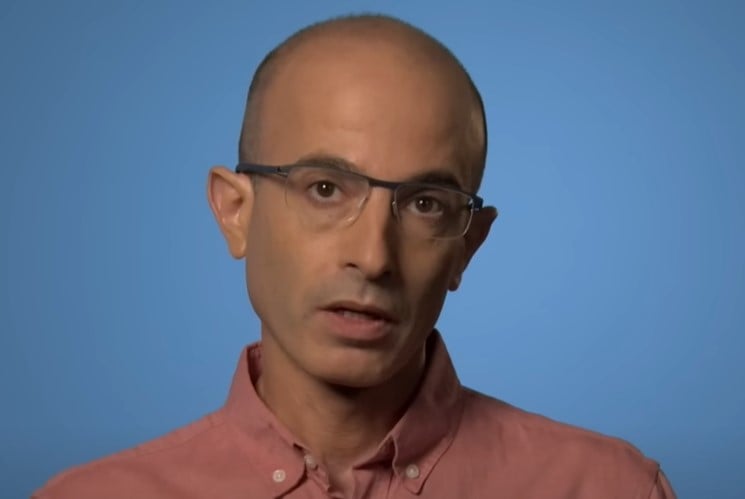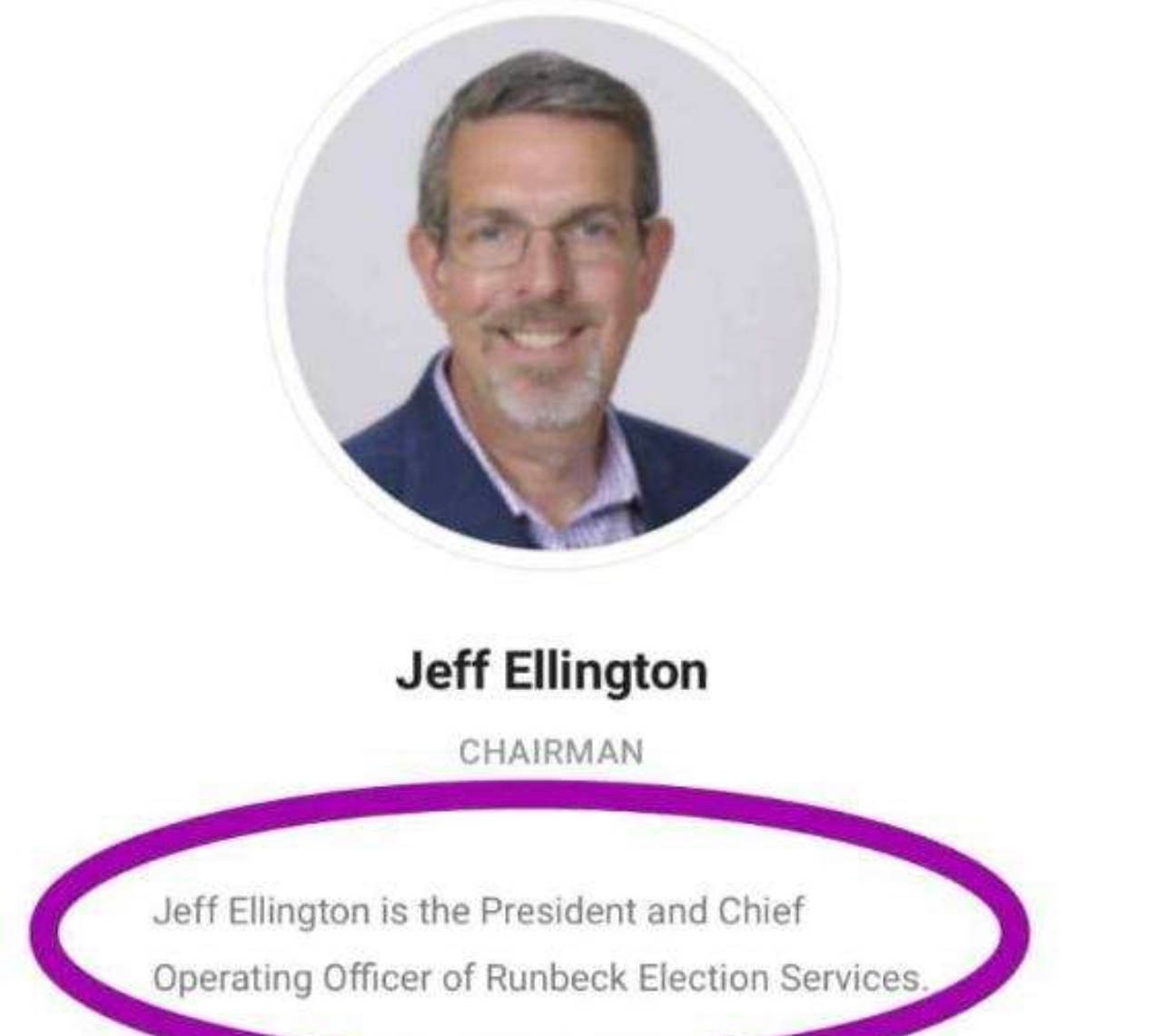[ad_1]

Guest post by Leo Hohmann
Deborah DeGroff is an author and expert on children’s books, which she analyzes from a biblical perspective. In her latest article, she peels back the layers of deception in a new book by noted globalist, futurist and transhumanist Yuval Noah Harari.
Some have described Harari, a gifted storyteller, as one of the world’s most dangerous men. He serves as one of Klaus Schwab’s top advisers at the World Economic Forum, has written many books and is a sought-after speaker not only at the WEF but on college campuses worldwide. He has stated that he believes humans are “hackable animals” devoid of a free will or a soul and that because we accepted mass surveillance during the Covid lockdowns, it’s just a matter of time before we accept the next step in a coming global technocracy — placing that surveillance “under the skin.”
But with a brand-new book hitting the bookstores, this marks Harari’s first attempt to get at our children. The book, targeting 10 to 14-year-olds, is being heavily marketed and will be the first in a four-part series, so the chances your child or grandchild will come in contact with it at some point are pretty high.
Here is DeGroff’s penetrating look at one of the world’s most dangerous men and how he’s working to get access to the minds of our most vulnerable and impressionable – our children.
Who is Yuval Noah Harari and why has he become so influential? What is his message? Does his heavily-marketed new book for children echo the same sentiments he so adamantly feeds his adult audiences?
Professor Yuval Noah Harari is a historian, philosopher, and the bestselling author of Sapiens: A Brief History of Humankind, Homo Deus: A Brief History of Tomorrow, 21 Lessons for the 21st Century, and Sapiens: A Graphic History. His books have sold over 40 million copies in 65 languages, and he is considered one of the world’s most influential public intellectuals today. [Click here to read the complete bio on Harari’s website.]
Harari was a keynote speaker at the World Economic Forum in Davos, Switzerland, in both 2018 and 2020. His speeches and interviews on various media platforms are watched by millions.
Harari is not shy about stating his beliefs. In a nutshell, in Harari’s gospel there is no God, no soul, and no freewill. Once these pillars are accepted as truth by his followers—many of whom are in positions of power—the next step will be deciding the fate of billions of people who are no longer necessary in a future world that consists of artificial intelligence, biotechnology, and transhumanism.
Harari’s book, Sapiens, was endorsed by Mark Zuckerberg, Bill Gates, and Barak Obama.
Christopher Carbone wrote the article, “Humans Will Eventually Merge With Machines, Professor Says,” for Fox News in July 2019, stating:
“It’s increasingly hard to tell where I end and where the computer begins,” Harari, a professor of history at the Hebrew University in Jerusalem, told the audience at the Fast Company European Innovation Festival. “In the future, it is likely that the smartphone will not be separated from you at all. It may be embedded in your body or brain, constantly scanning your biometric data and your emotions.”
Harari continued: “If we told our ancestors in the Stone Age about our lives today, they would think we are already Gods. But the truth is that even though we have developed more sophisticated tools, we are the same animals. We have the same emotions, the same minds. The coming revolution will change that. It will change not just our tools, it will change the human being itself.”
In his speech at the 2020 World Economic Forum in Davos, Harari informed his audience that automation will soon eliminate millions upon millions of jobs (creating a large class of “useless people”). Harari stated:
Old jobs will disappear, new jobs will emerge, but then the new jobs will rapidly change and vanish. Whereas in the past humans had to struggle against exploitation, in the 21st century the really big struggle will be against irrelevance.
And it is much worse to be irrelevant than exploited.
Those who fail in the struggle against irrelevance would constitute a new “useless class” – people who are useless not from the viewpoint of their friends and family, but useless from the viewpoint of the economic and political system.
. . . And what will happen to politics in your country in twenty years, when somebody in San Francisco or Beijing knows the entire medical and personal history of every politician, every judge and every journalist in your country, including all their sexual escapades, all their mental weaknesses and all their corrupt dealings? Will it still be an independent country or will it become a data-colony?
When you have enough data you don’t need to send soldiers, in order to control a country.
. . . If you know enough biology and have enough computing power and data, you can hack my body and my brain and my life, and you can understand me better than I understand myself. . . . You know more about me than I know about myself. And you can do that not just to me, but to everyone.
A system that understands us better than we understand ourselves can predict our feelings and decisions, can manipulate our feelings and decisions, and can ultimately make decisions for us.
. . . But soon at least some corporations and governments will be able to systematically hack all the people. We humans should get used to the idea that we are no longer mysterious souls – we are now hackable animals. That’s what we are.
. . . In the coming decades, AI and biotechnology will give us godlike abilities to reengineer life, and even to create completely new life-forms. After four billion years of organic life shaped by natural selection, we are about to enter a new era of inorganic life shaped by intelligent design.
Our intelligent design is going to be the new driving force of the evolution of life. . . [Click here to read the speech]
Chris Anderson, head of TED media, interviewed Harari in August 2022. Anderson commented that Harari strongly recommends meditation. Harari responded that he meditates for two hours each day and that he does the Vipassana meditation, which he learned from S.N. Goenka.
“And . . . my yearly vacation is to go on a long retreat of between say 30 days and 60 days. I just came back last month from a 60-day meditation retreat,” Harari says. [Click here to listen, starting at 45:20.]
During this interview, Harari tells Anderson he isn’t against technology as it “can bring enormous benefits to humanity as a whole.” He continues that he “met [his] husband online in one of the first dating sites for LGBT people in Israel in the early 2000s.” [Click here to listen. This begins at 40:29.]
Yuval Noah Harari holds great influence with many people in positions of power. Up until recently, this audience has consisted of adults.
Now, Harari is introducing his message to children.
Autumn 2022 saw Harari venturing into the world of children’s books, with the pre-teen series Unstoppable Us. Here, he tells the unbelievable true story of humans – our all-conquering and insatiable species – in a way that is accessible to kids. The series will be published in four volumes, featuring full-color illustrations, starting with Unstoppable Us, Volume 1: How Humans Took Over the World.
Harari includes a Timeline of History at the beginning of Unstoppable Us.
PART 1, HISTORY OF HUMANITY
He begins with 6 million years ago with a picture of an upright creature that is a cross between a human and an ape. The caption reads that this was the “last common ancestor of humans and chimpanzees.”
He follows with a jump to the 2.5 million years ago mark in which he states that “Humans evolve in Africa.” The Gospel of Harari moves forward another half-million years with the “[e]volution of different kinds of humans.”
By 400,000 years ago, “Neanderthals evolve in Europe and the Middle East” and 300,000 years ago, “Sapiens evolve in Africa.” 70,000 years ago, “the Sapiens leave Africa in large numbers.” 35,000 years ago the Neanderthals are extinct and “Sapiens are the last surviving kind of human.”
“Planet Earth was once ruled by many different animals . . . But now we humans rule everything: the land, the sea, and the sky. . . . The only reason lions, dolphins, and eagles still exist is because we allow them to.”
He concludes this introduction with, “AND it’s a true story.”
Chapter 1 teaches the children that millions of years ago, we were just ordinary animals who ate worms and climbed trees to pick fruit. Until humans learned to make tools, the other animals weren’t afraid of them.
Harari explains that when kids wake up in the night frightened that there are monsters under their beds that this is simply “a memory from millions of years ago . . . [when] monsters . . . sneaked up on children in the night.” His example is of a lion coming to eat the child. This idea is repeated in the closing of his book.
Next, the humans invented fire.
“A single weak human with a fire stick could burn down an entire forest in a matter of hours, destroying thousands of trees and killing thousands of animals.”
Now, the humans could cook their food. As a result, “humans started to change: they had smaller teeth, smaller stomachs . . . and much more free time.”
Harari expands on this by stating that some scientists “suggest it was cooking that made it possible for the human brain to start growing.”
Once they started cooking . . . humans could spend far less energy chewing and digesting and had more energy to feed big brains. Their stomachs shrank, their brains grew, and people got smarter.
In the next chapter, the children learn that “our planet was actually home to many different kinds of humans.”
Harari introduces the Floresians and follows with the “bigger-brained” Neanderthals, and the Denisovans. However, according to him, the Sapiens eventually killed off all of these “ancestors.”
“. . . when the new super-Sapiens reached Europe, they picked all the pears, ate all the berries, and hunted all the deer. This meant that the local Neanderthals had nothing left to eat, so they died of hunger. And if any Neanderthals tried to stop the Sapiens from taking all the food, the Sapiens probably killed them.”
“Then our ancestors went to Siberia and took all the food from the Denisovans. And then they went to Flores, and . . . soon there wasn’t a single small human or small elephant to be found. And when all the other humans were gone, our ancestors still weren’t satisfied. Although they were now incredibly powerful, they wanted even more power and more food, so they sometimes fought one another.”
The next chapter begins with, “You see, we Sapiens are not very nice animals.” Often, he concludes, this is due to different skin colors, languages, or religions.
“But a few years ago, scientists discovered that at least some of our Sapiens ancestors didn’t kill or starve all the other humans they met.”
Harari explains that because of our knowledge of DNA, scientists have determined that some Neanderthals had children with Sapiens. I guess Harari intends for these middle-grade students to conclude that some people today are not 100% evil since they have some Neanderthal DNA . . .
Harari then speculates as to what the world would be like today if “our ancestors had been nicer and had allowed the Neanderthals and the Floresians to go on living and developing.”
PART 2: GOD IS JUST A FAIRY TALE
In Part 2 of the book, Harari’s explains why and how Sapiens ended up ruling the world. He says cooperation is what makes us so powerful.
Harari then poses the question:
“How did our ancestors learn to cooperate in large numbers in the first place, and how come we can constantly change our behavior?”
“[It’s] our ability to dream up stuff that isn’t really there and to tell all kinds of imaginary stories.”
“If thousands of people believe in the same story, then they’ll all follow the same rules, which means they can cooperate effectively.”
“Let’s say a Sapiens tells everyone this story: “There’s a Great Lion Spirit that lives above the clouds. If you obey the Great Lion Spirit, then when you die, you’ll go the land of the spirits, and you’ll have all the bananas you can eat. But if you disobey the Great Lion Spirit, a big lion will come and eat you!”
“Of course, this story isn’t true at all. But if a thousand people believe it, they’ll all start doing whatever the story tells them to do.”
He expands on this—just in case it went over any of the kids’ heads. “If you say, ‘The Great Lion Spirit wants everyone to give a banana to the priest in the temple, and in return, when they die, they’ll receive lots and lots of bananas in the land of the spirits,’ then a thousand people will bring bananas to the priest.”
“You could never persuade a chimpanzee to give you a banana by promising him that when he dies, he’ll go to chimpanzee heaven and have all the bananas he can eat . . . only Sapiens believe stories like that. And that’s why we rule the world, whereas poor chimps are locked up in zoos.”
“Some go fight people on the other side of the world because they believe that a god told them to. Others give lots of money to construct a big building because they believe that a god wants it.”
Harari next informs the kids about “one of the most interesting games grown-ups play . . . called ‘corporation.’” He uses McDonald’s Corporation as an illustration and informs the children that although you can go to the restaurants or talk to the employees, what they see is not McDonald’s as “it exists only in our imagination.”
“. . . If you want to open a restaurant but you don’t want to risk losing your socks or going to jail, you create a corporation. And then the corporation does everything and takes all the risks.”
“The corporation borrows money from the bank, and if it can’t repay the money, nobody can blame you for it, and nobody can take your house or your socks. After all, the bank gave the money to the corporation, not to you. And if somebody eats a burger and gets a really nasty stomachache, nobody can hold you responsible. You didn’t make that burger—the corporation did.”
“Well, money is also just another imaginary story that grown-ups believe. [Bankers and politicians] tell stories like “This small piece of paper is worth ten bananas,” and the grown-ups believe them.”
“. . . humans can quickly change the way we behave by simply changing the stories we believe.”
Harari then uses France to illustrate the next point he wants to make:
“People believed that a great god above the clouds said that France must be ruled by a king and that all French people must do whatever the king commanded. . . . But as long as French people believed this story, they obeyed their king.”
He follows with a story about a king’s daughter that wanted to rule France. “You can’t rule France,” they said, “because the great god above the clouds doesn’t like girls very much. The great god above the clouds is a boy, so he made boys much smarter and braver than girls. So a girl can’t rule the kingdom of France. Only boys can.” And because people believed the story, they wouldn’t let girls become rulers. In fact, they wouldn’t let them do all sorts of things: . . .
“But there are two important things to remember: people need stories in order to cooperate, and they can change the way they cooperate by changing the stories they believe.”
On page 72, Harari suggests that someone “might have told them stories” such as:
“The Great Lion Spirit wants us to get rid of the Neanderthals . . . [they] are very strong, but don’t worry. Even if a Neanderthal kills you, that’s actually a good thing because you’ll go to the land of the spirits above the clouds, where the Great Lion Spirit will welcome you and give you lots of blueberries and giraffe steaks to eat.”
“And people believed the story, so they cooperated to get rid of the Neanderthals.”
“. . . This belief in stories gave our ancestors so much power that they spread all over the world, conquering every land on the planet.”
HARARI’S CORRUPTED VIEW OF THE FAMILY
Read the rest here…
LeoHohmann.com is 100 percent reader supported, bringing you news and analysis you won’t find elsewhere. If you would like to help support my work, please consider making a donation, which can be sent c/o Leo Hohmann, PO Box 291, Newnan, GA 30264, or via credit card through GiveSendGo.
[ad_2]
Source link




